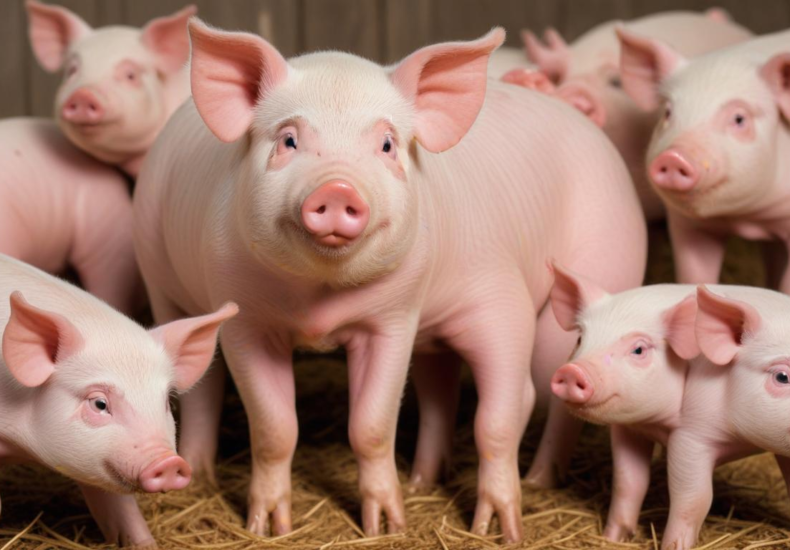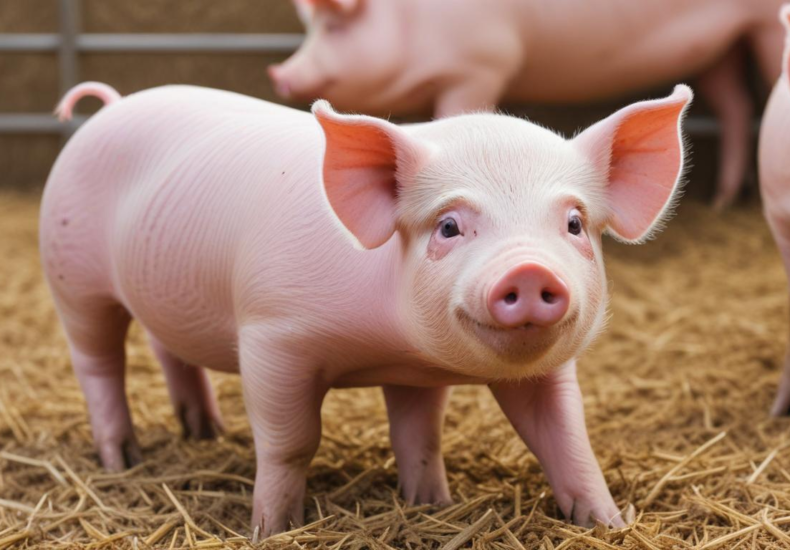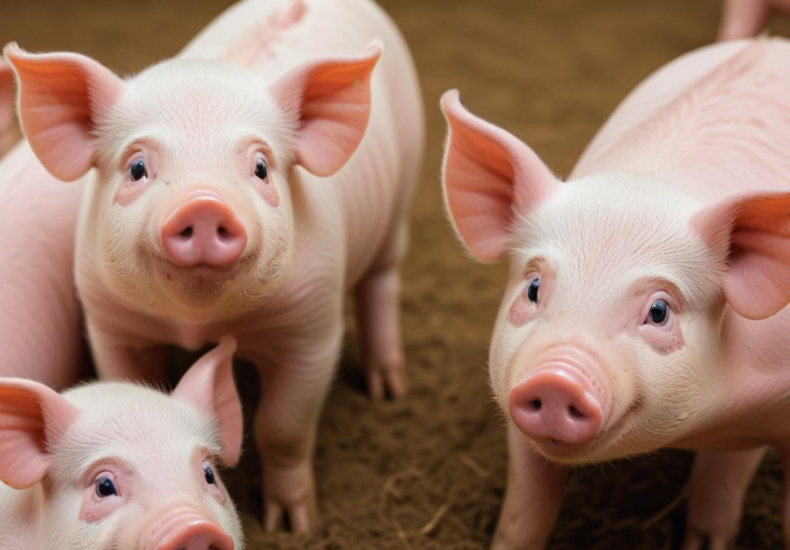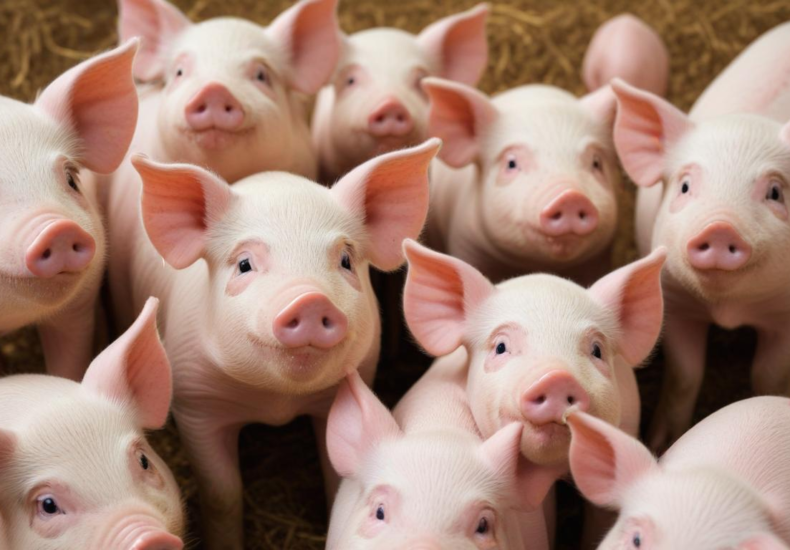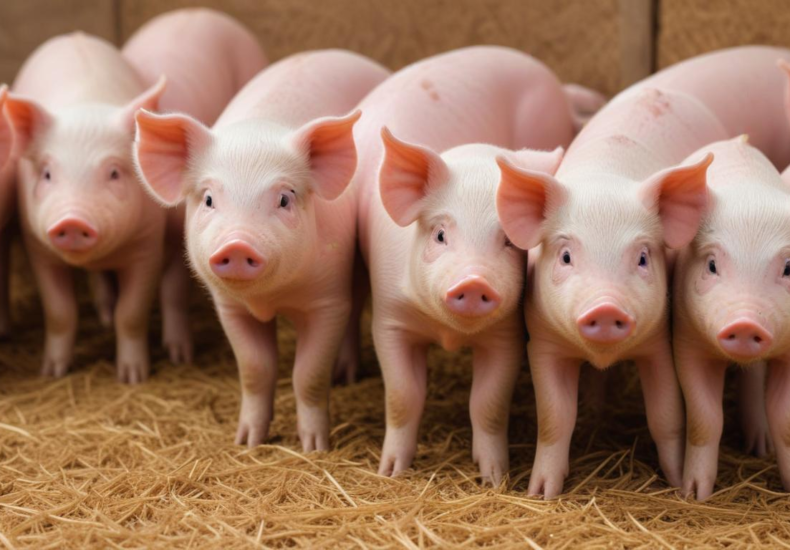Author: Pig Information
breeding pigs for improved meat quality through genetics
Genetic selection strategies in pig breeding significantly enhance meat quality by focusing on traits that impact sensory and nutritional aspects. Advanced techniques such as genomic selection and marker-assisted breeding enable breeders to identify and select for desirable characteristics, including marbling, tenderness, and growth rates, from an early age. As molecular genetics evolves, understanding the interplay of various traits and their implications for consumer satisfaction becomes crucial, shaping the future of pork production through improved efficiency and sustainability.
inbreeding effects on pig genetics
Inbreeding in pigs significantly impacts genetic diversity, raising concerns about health, reproduction, and adaptability. As closely related individuals mate, the risk of inherited disorders increases, leading to lower fertility rates, smaller litter sizes, and altered behaviors that can disrupt social structures. Understanding these effects is crucial for breeders aiming to maintain robust populations. Strategies such as outcrossing, crossbreeding, and genomic selection offer pathways to enhance genetic variability, ensuring long-term sustainability and improved performance in pig farming. The dynamics of pig genetics call for innovative approaches to safeguard the future of breeding programs.
mapping pig genes for improved productivity
Recent advancements in pig genomics are reshaping the pork industry by enhancing breeding programs through innovative gene mapping techniques. Researchers are uncovering vital genetic markers linked to productivity traits such as growth efficiency, meat quality, and disease resistance. This transformation promises not only improved livestock performance but also sustainability in pork production. By integrating genomic data, breeders can make informed selections that address market demands while promoting animal welfare. The future of pig farming hinges on this genetic revolution, steering the industry toward greater efficiency and resilience.
understanding pig genetics for better breeding
The field of pig genetics delves into the hereditary traits that shape swine production, influencing growth performance, reproductive success, carcass quality, and disease resilience. Breeders leverage advances in genomic technologies, precision breeding, and data analytics to enhance efficiency and productivity. As they navigate these complexities, a focus on sustainability and consumer preferences emerges, presenting both challenges and opportunities for the pork industry’s future. Discover how these trends are revolutionizing breeding practices and shaping the next generation of swine.
evolutionary genetics of domestic pigs
The evolutionary history of domestic pigs reveals a fascinating transformation from wild boars to diverse breeds adapted for agricultural needs. This journey, influenced by both natural selection and human intervention, underscores the importance of genetic diversity for resilience and health. Recent advancements in genomic technologies are reshaping breeding strategies, allowing for a finer understanding of desirable traits while emphasizing ethical practices and conservation. The intricacies of this dynamic relationship between genetics and agriculture pave the way for sustainable pig farming in a changing environment.
how pig breeding innovations rely on genetics
Recent advancements in genetic theory are revolutionizing pig breeding and agricultural practices by enhancing the selection of desirable traits for healthier and more productive livestock. Key methodologies, including genomic selection and CRISPR gene editing, allow breeders to utilize sophisticated tools and data analytics to improve disease resistance, reproductive performance, and overall herd health. As the industry embraces these innovations, the potential for greater sustainability, efficiency, and economic viability in pig farming is becoming increasingly apparent. What other groundbreaking changes lie ahead in animal genetics?
why some pigs have better feed efficiency genetically
Certain pigs possess unique genetic traits that enable superior feed efficiency, allowing them to convert feed into body mass more effectively than their peers. Selective breeding practices over generations emphasize specific traits linked to enhanced growth and metabolism. As researchers unravel the genetic factors at play, the potential for optimizing swine production not only promises increased productivity but also significant economic benefits for farmers. The interplay between genetics, feed composition, and management strategies shapes the future of sustainable and efficient pork production systems.
DNA testing for better pig breeding
Recent advancements in DNA testing are transforming pig breeding, enabling farmers to enhance genetic quality and improve overall herd performance. Techniques like high-throughput sequencing and marker-assisted selection provide insights into traits such as growth rates and disease resistance. As breeders leverage genomic data, the future of pork production is set to increase efficiency, address market demands, and promote sustainable practices. The integration of innovative technologies—combined with continuous education and collaboration—promises a new era for livestock breeding, balancing productivity with animal welfare and environmental considerations.
pig breeding strategies to enhance genetic diversity
Genetic diversity in pig breeding is vital for creating resilient populations capable of withstanding environmental changes and disease challenges. Utilizing strategies like crossbreeding, rotational breeding, and the integration of rare breeds enhances the genetic pool, promoting adaptability and improved productivity. Advanced techniques, including genomic selection and molecular markers, revolutionize breeding practices, allowing precise selection for beneficial traits. Sustainable management strategies, such as gene banks and community-based breeding programs, ensure the preservation of genetic resources, paving the way for healthier and more sustainable pig farming practices. Discover the intricate dynamics at play in this essential aspect of agriculture.
understanding recessive and dominant pig traits
Genetic inheritance in pigs shapes their physical and behavioral traits through the interplay of dominant and recessive alleles. This intricate process influences breeding decisions, impacting herd health and productivity. By understanding how these traits manifest, farmers can strategically select breeding pairs to enhance desirable characteristics, optimize production, and manage potential recessive challenges. As breeders delve deeper into the genetics of their stock, they unlock the potential for improved quality and efficiency in pig farming, navigating a landscape where informed choices yield significant rewards.
Archives
Calendar
| M | T | W | T | F | S | S |
|---|---|---|---|---|---|---|
| 1 | ||||||
| 2 | 3 | 4 | 5 | 6 | 7 | 8 |
| 9 | 10 | 11 | 12 | 13 | 14 | 15 |
| 16 | 17 | 18 | 19 | 20 | 21 | 22 |
| 23 | 24 | 25 | 26 | 27 | 28 | |

